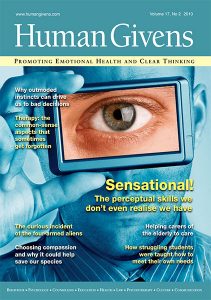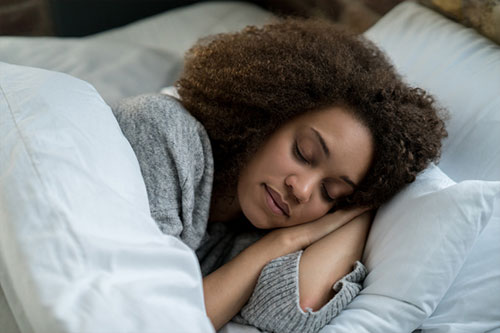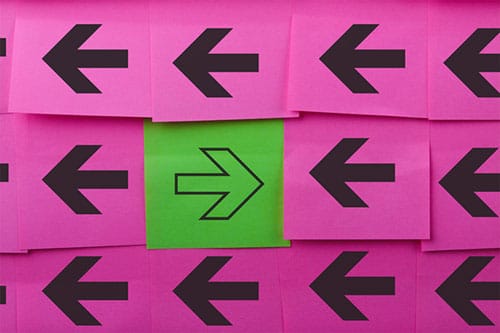“To sleep … perchance”
To help insomniacs improve their sleep, it may be more effective to expend most effort on ‘arousal-related behaviours’ rather than on other aspects of ‘sleep hygiene’, say Taiwanese researchers.
Good ‘sleep hygiene’ is generally associated with better sleep. However, according to the researchers, the contributing role of poor sleep hygiene practices in insomnia has not been well established. “Considering the broad aspects of sleep hygiene and the various behaviours that may interfere with sleep, sleep hygiene may not be represented with a single construct. An individual who frequently practises one aspect of maladaptive sleep may not necessarily practise the others. A patient who typically does not follow a regular sleep schedule, for example, would not necessarily be more prone to planning the next day before bedtime or to drinking excessive amounts of caffeinated drinks. Therefore, different domains of sleep hygiene should be evaluated separately,” they say. So they set out to do just that.
They recruited 44 men and 45 women, who were ‘good sleepers’, and 46 men and 60 women of similar age, sex and education, who suffered from insomnia as diagnosed by a psychiatrist. The criteria for inclusion of the latter were experiencing difficulty initiating or maintaining sleep, and/or non-restorative sleep for at least a month; resultant clinically significant distress or social or occupational impairment; and sleep disturbance not being attributable to a mental disorder, medical condition and/or substance use.
A package of questionnaires relevant to different aspects of sleep hygiene was administered individually to all participants. These included investigation of arousal-related behaviours (see panel below); sleep scheduling and timing (for example, inconsistent bedtimes, napping); eating and drinking behaviours (for example, going to bed hungry or consuming alcohol or eating too much food prior to sleep); and sleep environment (for example, too hot, too cold, too bright, too airless, too uncomfortable, too fidgety a bed partner).
The researchers were intrigued to find that the associations between sleep hygiene and sleep quality were more evident for good sleepers than for insomniacs. Among the latter, the only area of sleep hygiene that correlated with insomnia severity and sleep quality was arousal-related behaviour. There were no appreciable differences between the two groups in sleep scheduling, drinking/eating habits and sleep environment.
“Our data suggests that sleep hygiene is one of the important determinants of sleep quality in normal sleepers. The more maladaptive sleep practices an individual employs, the more sleep disruptions he or she may experience. However, only arousal-related behaviour is associated with sleep difficulties in chronic insomniacs,” say the researchers. They suggest that patients with chronic insomnia may act differently in terms of sleep hygiene even before they develop insomnia. “For example, some of them may worry more about the negative consequences of poor sleep and therefore pay more attention to their sleep environment and sleep-related practices. Thus, most domains of sleep hygiene may not be associated with poor sleep. However, this worry-prone tendency may lead to more arousal-provoking behaviours that may interfere with sleep. Therefore, the more arousal-related behaviours an insomnia patient does, the more sleep disruption he/she may have.”
Alternatively, insomniacs might become more mindful of sleep hygiene once insomnia starts to develop. Or arousal-related behaviours might increase as a result of poor sleep. The researchers recommend interventions to reduce physiological or cognitive arousal but end with usual caution: “The results may suggest that poor sleep hygiene may precipitate sleep disturbance in non-insomniacs, and arousal-related behaviours may perpetuate the sleep problem into chronic insomnia. However, the causality cannot be assumed.”
Arousal-related behaviours
- Doing sleep-irrelevant activities in bed (for example, watching TV, reading)
- Worrying about being unable to fall asleep in bed
- Unpleasant conversation prior to sleep
- Not enough time to relax prior to sleep
- Falling asleep with TV or music on
- Pondering about unresolved matters while lying in bed
- Checking the time in the middle of night
- Worrying about night-time sleep during the day
- Vigorous exercise during the two hours prior to sleep
Reference
Yang, C-M, Lin, S-H, Hsu, S-C and Cheng C-P (2010). Maladaptive sleep hygiene practices in good sleepers and patients with insomnia. Journal of Health Psychology, 15, 1, 147–55.






